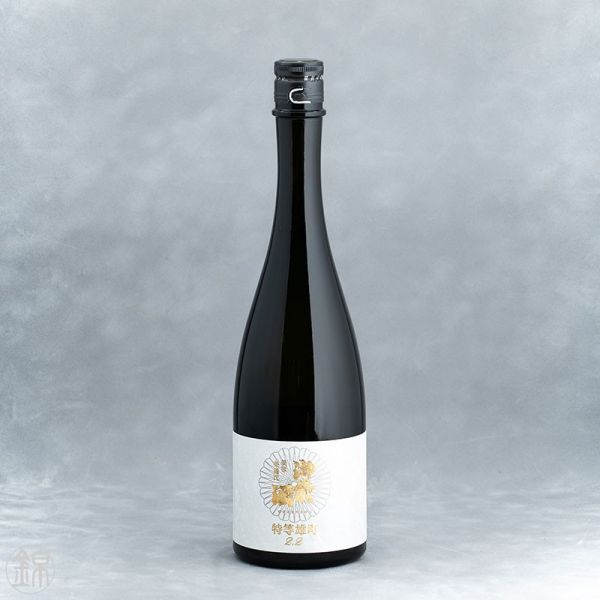Gozenshu Junmai Daiginjo "Tokuto Omachi 2.2" sake
The nose is surprising, with powerful lactic notes, sweet and sour notes reminiscent of yoghurt and sweet whey.
The palate is sweet, complex, fruity, floral, with a greedy lactic acidity. We recommend this gozenshu with olives, dried mango or more surprisingly with caviar.
Its softness predisposes it for tasting matured goat cheeses, blue-veined cheeses, not to mention old Comté, old mimolette, parmesan, pecorino, quality cold cuts (Iberian bellota pork ham, Black ham from Bigorre ).
The production of this Gozenshu is very limited: only 500 bottles for the whole world.
This sake is the ultimate Gozenshu challenge made from Omachi rice.
This Gozenshu Junmai Daiginjo Toku to Omachi 2.2 is made with the highest level of Omachi rice available in extremely limited quantities for the 2019 vintage and made with the oldest brewing method, "Bodaimoto", in Japan.
Bodaimoto brewing, for the Gozenshu (sake of the Lords), is a medieval technique for making vats (Shubo, Moto) common 1,000 years ago, consisting of mixing malt in a large quantity of pure water. For this Gozenshu, the malted rice is placed in a cloth and then soaked in a tub of pure water for 10 to 25 days and, under the action of natural lactic acid bacteria and yeasts naturally present in the environment, becomes loaded with lactic acid. The acidity of the water (pH) can then rise to 6.5. This acidic water is called "soyashi" or "soyashimizu" water. It allows the creation of the starter or mother of sake. It promotes the development of good yeasts and prevents the formation or appearance of bad bacteria. The addition of steamed rice and kôji will allow the creation of shubo (starter, mother of sake). The kobo (yeast) is then added and will give birth 10 to 14 days later, to the moromi.
From this moromi will be extracted sake.
| Acidity | 1.6 |
|---|---|
| Palate | sweet, complex, fruity, floral |
| Gewicht | 720 ml net |
| Rice polishing ratio "seimaï-buai" | 40% |
| Volume of pure alcohol | 16% |
| Appearance | clear |
| Kobo/yeast/Kyokai | 1801 + 1401 |
| Idéal tasting temperature | +8°C to +10°C |
| Kategorie | Gozenshu Bodaimoto Junmaï Daiginjo |
| Herkunft | Seto (Okayama), Japan |
| Verpackung | bronze green bottle |
| Ingredients | omachi rice, kôji |
| Storage | +5°C to +10°C |
| Recommandation | EXCESSIVE CONSUMPTION OF ALCOHOL IS DANGEROUS FOR YOUR HEALTH. DRINK WITH MODERATION. CONSUMPTION OF ALCOHOLIC BEVERAGES DURING PREGNANCY, EVEN IN SMALL QUANTITY, CAN HAVE SEVERE CONSEQUENCES FOR THE CHILD’S HEALTH. THE SALE OF ALCOHOL IS FORBIDDEN TO MINORS UNDER AGE 18 |
| Excise category | I000 |
| Filtering | Yabuta : The Yabuta filter press is a compressed air system equipped with a horizontal style originally developed by the YABUTA company. Yabuta filter press is equipped with the superior function of filtration and dewatering. This system does not create any damage to the filtered liquid. |
| Brewery | TSUJI HONTEN |
| Service | Burgundy glass |
| Grösse | 30g |


Anmelden